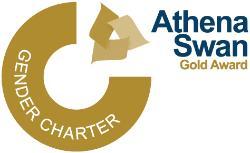An ECR reflects! (Michael Fleming)
Published: 14 March 2023
The SHW Athena SWAN early career researcher group continues its showcasing of interviews with some of the ECR community in SHW, which this month features Public Health's Michael Fleming
Over the next few months, the SHW Athena SWAN early career researcher group will be showcasing interviews with some of the wonderful ECR community in SHW. For this second instalment we caught up with Michael Fleming, who co-chairs the early career researcher group with Paul Mccrorie. (Read Paul’s interview in February 2023 HAWKEYE)

Michael is a lecturer and statistician in public health at the SHW. Michael is interested in novel record linkage methods and the analysis of complex linked data, with a focus on child and adolescent health. Michael also contributes greatly to the statistics teaching on the MPH course, and leads the Further Epidemiology and Statistics module.
Knowing what you know now, what advice would you give your former self, as an ECR starting out, if you could go back in time?
I would have advised myself (1) to have moved back into academia quicker than I did – I worked for 10 years as a statistician in the public sector before moving back into full time research (2) to have more confidence and trust in my own ability and judgement (3) to forge wider networks and collaborations quicker than I did as these are so important in research and, finally, (4) to get clued up more quickly about things like public engagement, knowledge exchange and wider dissemination to improve the impact of my research.
What has been the best piece of advice you have been given as an ECR?
Probably to have more confidence and trust in my own ability and judgement!
What is your favourite and least favourite part about working in academia?
- Favourite – genuinely enjoying my job. The feeling that my work is making a difference. Working with colleagues who are highly motivated and experts in their respective fields.
- Least favourite – the constant imposter syndrome and the fact that no matter how hard you work in academia there is always more you could be doing….switching off completely is very difficult!
What are you most proud of from your career so far?
Managing to successfully forge an academic career having followed a possibly less traditional route back into academia. I worked for ten years as a statistician in the public sector before deciding to do a PhD in my early thirties with the view to hopefully moving back into academia full-time. Thankfully, it worked out exactly as I’d hoped as it led on to my fellowship and current lecturer position.
Do you have any go-to routines or habits that you find helpful for writing/reading/other research activities?
Booking off protected time in the diary is key! If I don’t allocate dedicated time and switch off the emails, then something else more urgent will always come along and bump it off the to do list!
How has the ECR experience changed since you first started working in academia?
The pandemic has had a huge impact on everyone including ECRs and has totally changed how we work. Whilst there have been many benefits to home and hybrid working (I have two young children therefore balancing work and childcare has been infinitely easier!), I think not seeing people face to face as much has impacted morale and impeded networking and collaboration.
What do you see changing in the next 5–10 years which will have the biggest impact on ECRs?
Post-pandemic, I think it will be interesting to see how our work patterns develop over the next five years. Will hybrid working continue as the work pattern of choice or, in time, will we begin to filter back to our old habits and full-time office hours?
Have you had any mentors in your time as an ECR, and how have you benefited from these relationships?
Yes, I have had internal and external mentors and would fully recommend having a mentor to all ECRs. It is great to get input from someone who has ‘been there done it’ and who has some distance and wider independent perspective on any issues that I may have.
What will you miss about being an ECR?
Honest answer – probably nothing. My view here is that if I am still in my post when I am no longer eligible to be classed as an ECR then I must have been doing something right!
What would you be doing if you weren’t working in academia?
I loved chemistry and astronomy at school and considered pharmacy or astrophysics as career choices (my undergraduate degree was then in astronomy and applied maths and I contemplated a research degree in astrophysics before opting instead for statistics and then public health). Now, if I were not working in academia I would definitely be working as a statistician elsewhere in the private or public sectors, most likely clinical trials. The great thing about being a statistician is that our skills are needed across so many different fields and the skills are very transferable.
Find out more about the aims and activities of the SHW Athena Swan ECR group
First published: 14 March 2023


